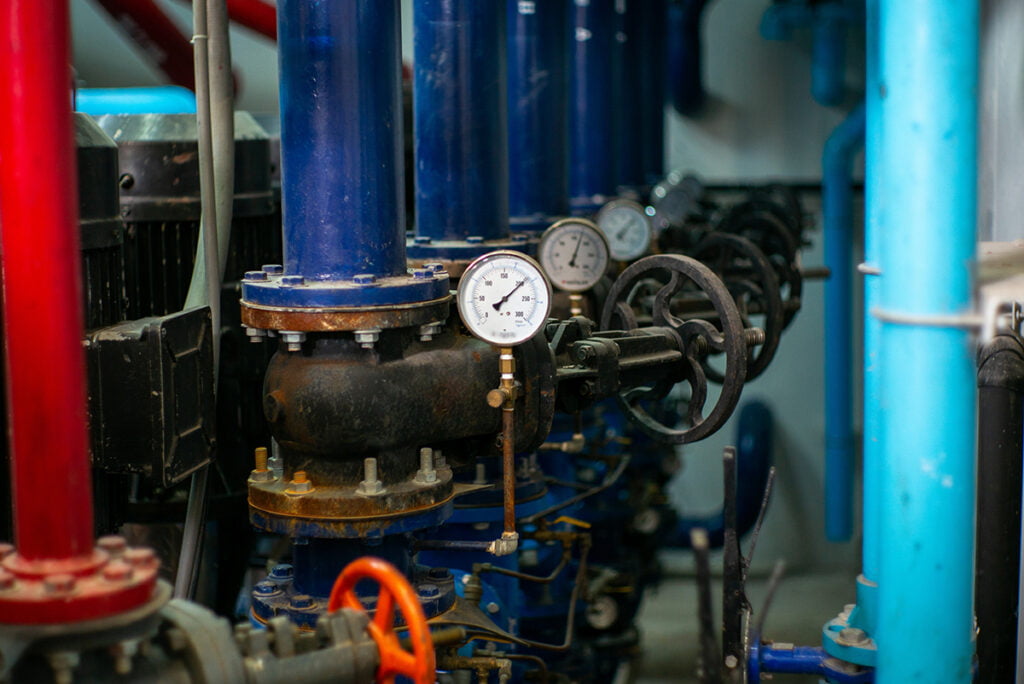Global warming has increased the severity and frequency of droughts across Australia, necessitating innovations in freshwater management. In fact, some Australians have even started exploring saltwater desalination technology as a measure to secure water availability during prolonged drought periods, highlighting the urgency to implement smart water management systems.
Enter the era of smart water meters – sophisticated devices designed to not only measure water consumption accurately but also facilitate seamless communication between consumers and water providers, ultimately promoting efficient water management and preventing unnecessary water loss due to leaks.
Understanding Smart Water Meters
Smart water meters represent a significant departure from traditional mechanical water meters. They rely on advanced technologies like ultrasonic or electromagnetic readings, ensuring precise and real-time measurements of water usage. Unlike their metal counterparts, many smart water meters now incorporate specialty polymers to enhance their durability and lightweight properties, contributing to the overall advancement of water management systems.
How Smart Water Meters Work
Smart water meter technology utilises wireless connections, facilitating remote and continuous data collection, available 24/7. Their “smartness” lies in their ability to record water consumption data with timestamps and securely share it with water suppliers or municipalities through automated control systems.
Internet of Things water metering systems either have a one-way communication system with the utility provider, known as Automated Meter Reading, or a two-way communication system between the consumer and utility provider, known as Advanced metering infrastructure.
Data collection and analysis in water metering also allows them to detect leaks. These meters are so finely tuned that they can detect even the smallest leaks promptly. If the meter does not register a consumption drop to zero within a defined timeframe, it immediately notifies either the utility company or the homeowner about a potential water leak, enabling timely repairs and preventing water wastage.
Advantages of Smart Water Meters
Smart water meters are progressively eradicating conventional methods of water consumption monitoring, making them one of the best innovations for saving money and conserving water. Some of their benefits include:
Real-time Tracking
Paired with an Advanced Metering Infrastructure (AMI) system, smart water meters remotely and accurately track water consumption, flow rates, and pressure anomalies, and even identify vacancies and tampering. Notably, the most significant advantage is their ability to detect and mitigate losses caused by leaks.
Dynamic Billing
Wireless communication in water meters allows for dynamic water billing, completely eliminating the need for monthly manual readings in every household. The real-time tracking of water consumption helps utility providers generate bills automatically and send them to consumers as soon as the billing quarter ends.
Leak Detection
Internet of Things water metering systems collect and monitor data, encouraging users to keep an eye on their regular habits and identify where exactly they’re wasting water. This information can then help them change their water consumption habits, leading to reduced bills and efficient water management.
Improved Water Management
The wealth of data gathered by smart water meter technology allows operational teams to analyse water usage efficiency at specific meters and optimise water delivery based on usage patterns. This information aids utilities in preparing for specific zones or grids more effectively.
Embracing a Smart Water Future
As droughts continue to impact communities worldwide, optimising water management infrastructure through smart meters becomes paramount. These intelligent systems, along with pulse logger technology, maximise the efficiency of water management, providing continuous tracking and encouraging collaborative efforts to reduce water wastage.
Thanks to the popularity of IoT technology, now’s the best time to invest in smart water metering systems. To become a part of the future of water conservation, contact The Water Meter Guys and get your own smart water meter installed today!
Answers to your Smart Water Meter Questions
Are there any drawbacks to using smart water meters?
While smart water meters offer numerous advantages, a couple of potential disadvantages exist. Some smart water meters use mobile networks to transmit data. If your area has poor mobile signal reception, this data transfer may fail.
Smart water metering systems also have limited support. As of now, not all utility companies and municipalities fully support the integration of smart water meters.
How are smart water meters powered?
Smart water meters typically rely on batteries as their power source. However, some models need a connection to your area’s electrical grid or are even powered by solar energy.
Does a smart water meter help save money?
Smart water meters empower consumers to analyse their water usage data, enabling them to make proactive changes to minimise waste. By optimising consumption, users can directly reduce their overall water costs.
Do smart water meters need a WiFi connection?
No, smart meters use a separate wireless system specifically designed for them. They do not require or utilise Wi-Fi within homes. Instead, they communicate with an in-home display via a secure national network exclusively for smart meters.
How are smart water meters different from standard water meters?
Unlike standard water meters that offer readings every six months, smart water meters provide accurate, real-time measurements and instant data transmission, facilitating timely responses to water consumption patterns.

